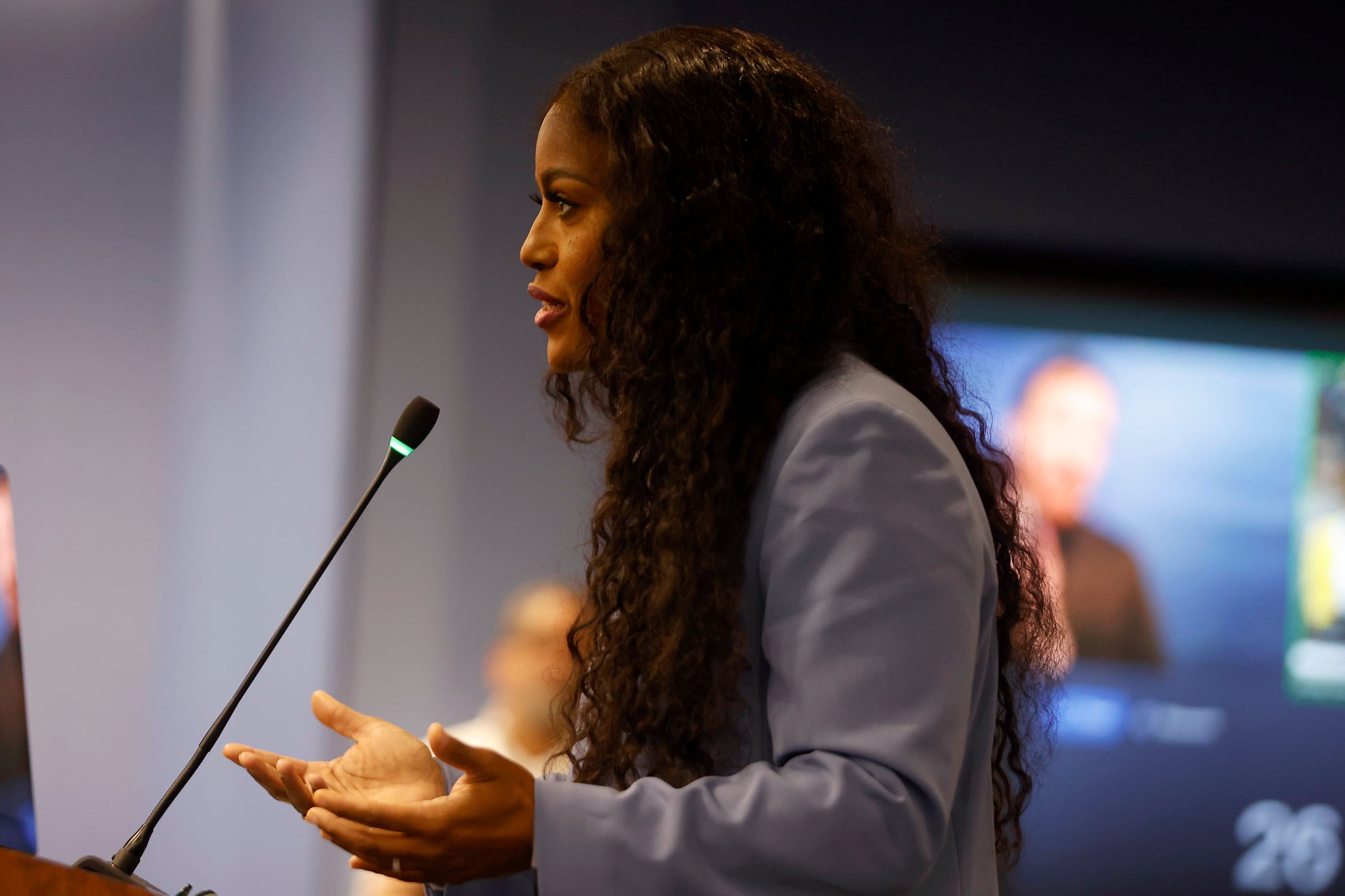Sign up for Chalkbeat Chicago’s free daily newsletter to keep up with the latest news on Chicago Public Schools.
Waves of teachers in blue shirts filled the Illinois capitol Wednesday to lobby state lawmakers for more education funding and push them to tax the rich.
Members of the Illinois Federation of Teachers spoke about the impact of the Trump administration’s cuts to the Department of Education and other public goods, such as the looming end of Supplemental Nutrition Assistance Program benefits, also known as SNAP, and how that impacts classrooms.
Those who spoke at a press conference on the steps of the capitol building demanded lawmakers find revenue to better fund state universities and K-12 schools.
The lobbying effort was the first led by IFT’s new leadership, which now includes Chicago Teachers Union President Stacy Davis Gates at the helm. Davis Gates won election to the CTU’s parent union earlier this month and took over for Dan Montgomery, who served as IFT president for 15 years.
“I’m not looking for a fight,” said Davis Gates. “I think Democrats in a blue state that understand the tyranny of Trump need to show up for our children in Illinois.”
Davis Gates said lawmakers and Gov. JB Pritzker should do more than hold press conferences denouncing President Donald Trump’s policies and she repeated the union’s push to “tax the rich.”
“We’re going to spend a lot of time in Springfield creating the lesson plans, the pathways for elected officials to honor the working people, the public servants, and the educators of the state of Illinois,” Davis Gates told a crowd of union members outside the capitol building.
Illinois House Democrats are currently eyeing a proposal to tax billionaire investments and entertainment in order to fund public transportation. But it could face hurdles getting through the Senate, which passed its own plan in the spring to tax rideshare, deliveries, and real estate transfers to better fund public transit. The state’s veto session ends Thursday.
The teachers union is supportive of taxing the rich to fund public services, including transit. But much of their focus Wednesday was to push lawmakers to fully fund public school districts and universities.
In 2017, Illinois lawmakers changed the way it distributed state funding to 850-plus school districts. They also committed to increasing funding by $350 million every year with a goal of getting every district to its unique “adequacy target” under a new evidence-based formula by 2027.
Chicago is one of hundreds of districts considered less than 90% funded. Although CPS has seen boosts in state funding, it still needs $1.6 billion to get from its current 73% funded level to 100% under the state’s formula.
“Too many districts are still so far from their adequacy targets,” said Mari Maldonado, a fourth grade special education teacher from Lincolnwood, a suburb north of Chicago. “We are demanding that the lawmakers close the loopholes, tax the ultra-wealthy, and deliver every penny our students were promised.”
Other IFT members who work at colleges and universities spoke about the need to overhaul funding for higher education in Illinois. There’s currently a proposal in the Senate that would implement an evidence-based formula similar to the one used for K-12 schools, distributing money based on need. It stalled in the spring after losing support from the University of Illinois over concerns it could harm the state’s flagship campus in Urbana Champaign.
Becky Vevea is the bureau chief for Chalkbeat Chicago. Contact Becky at bvevea@chalkbeat.org.





